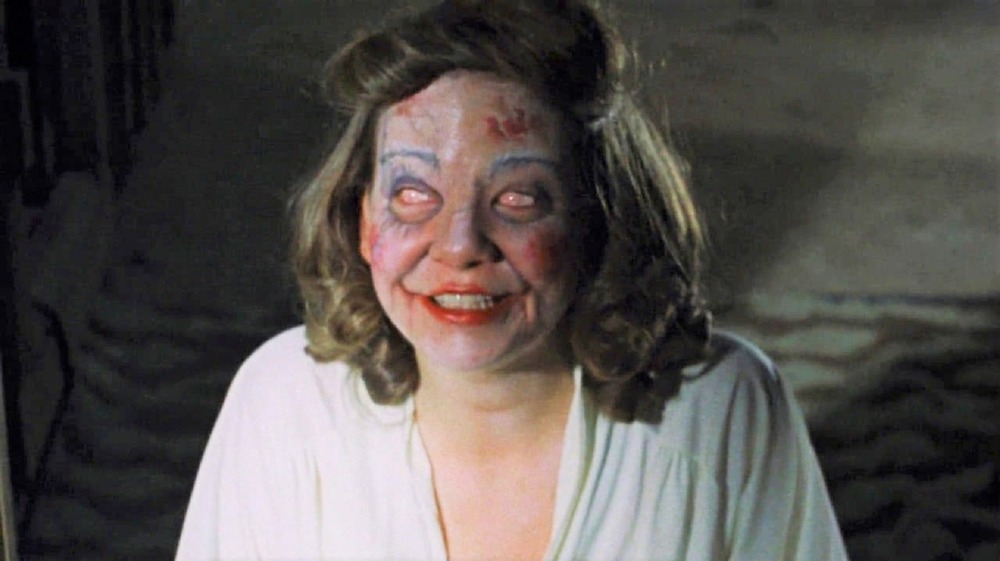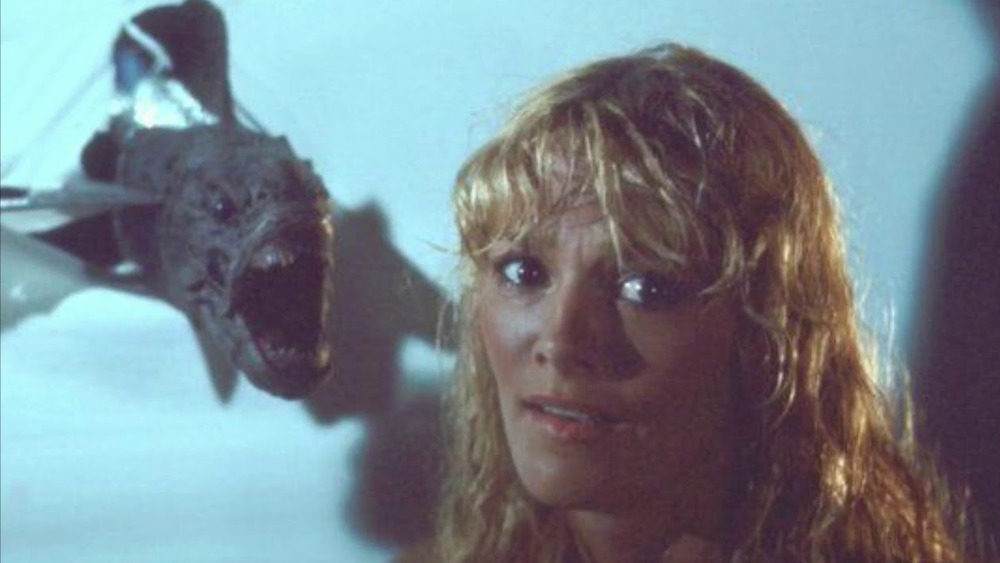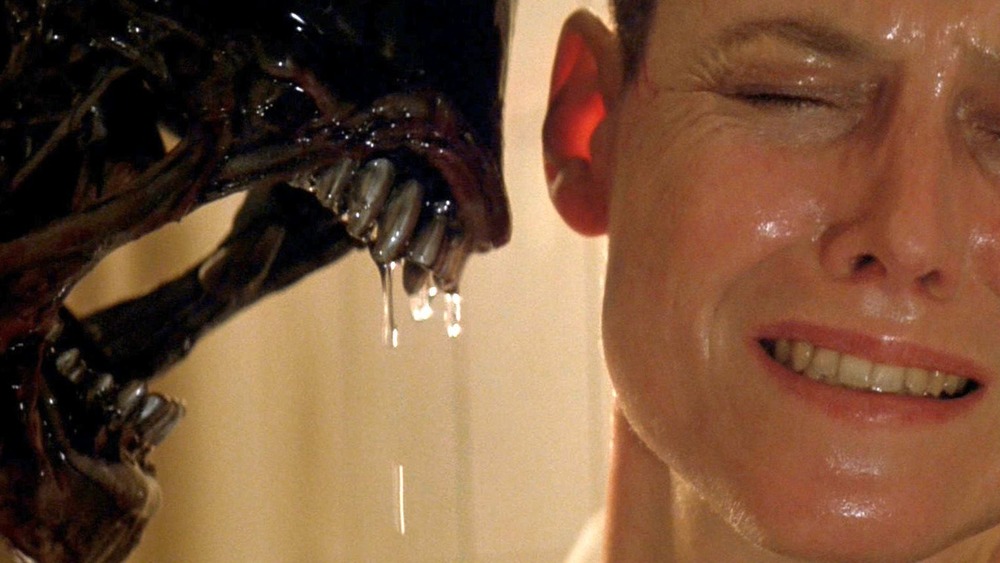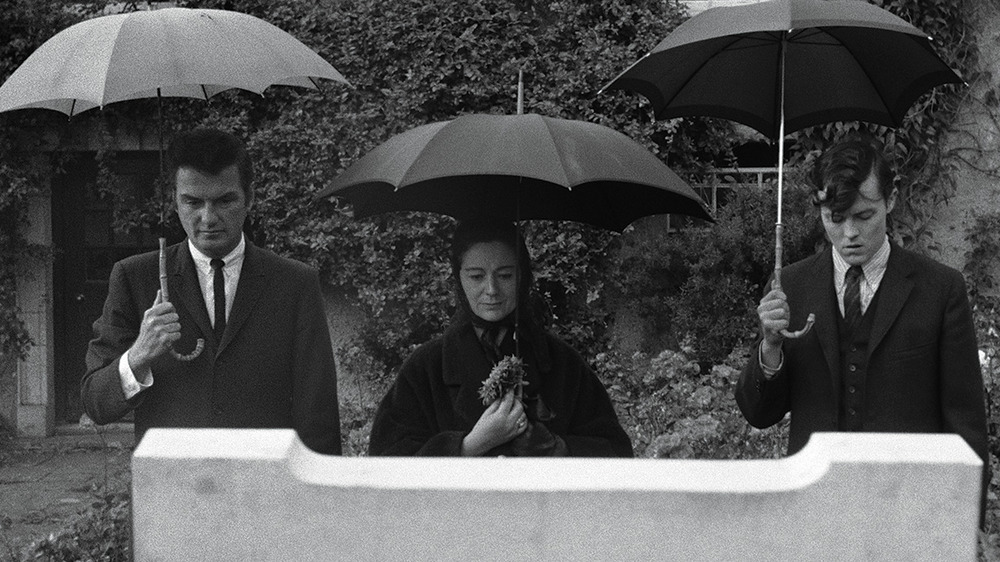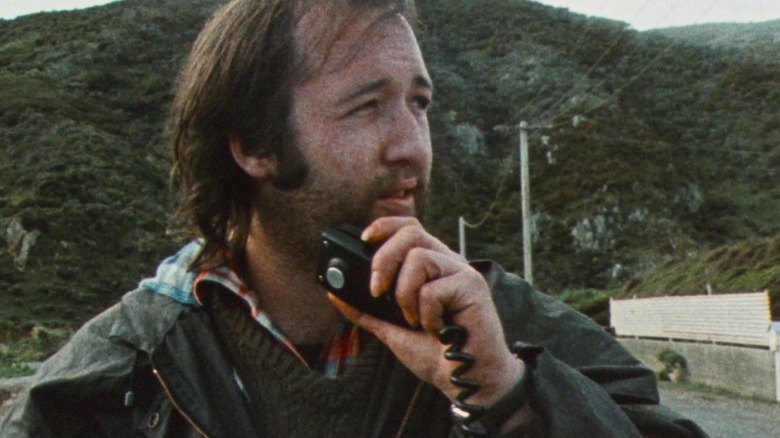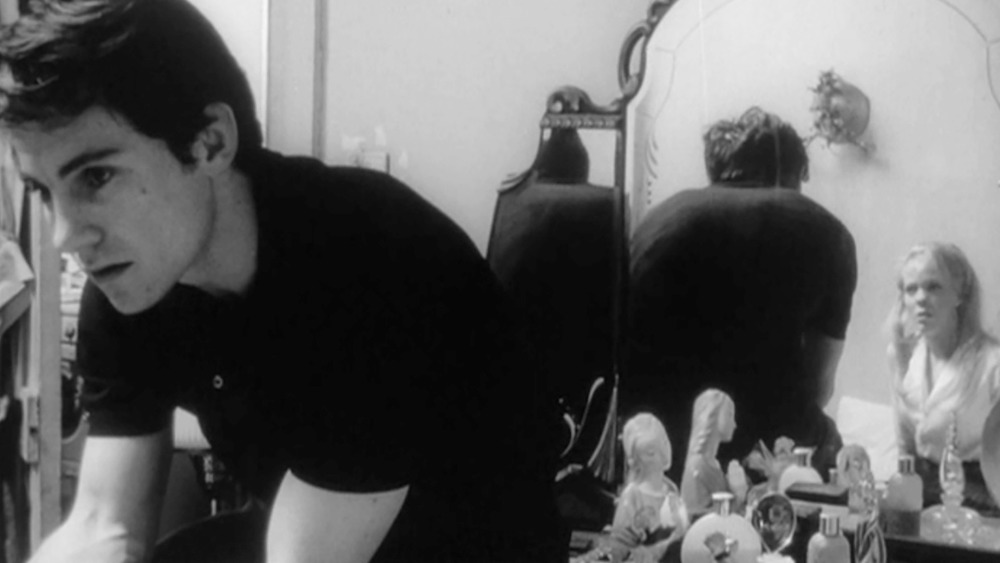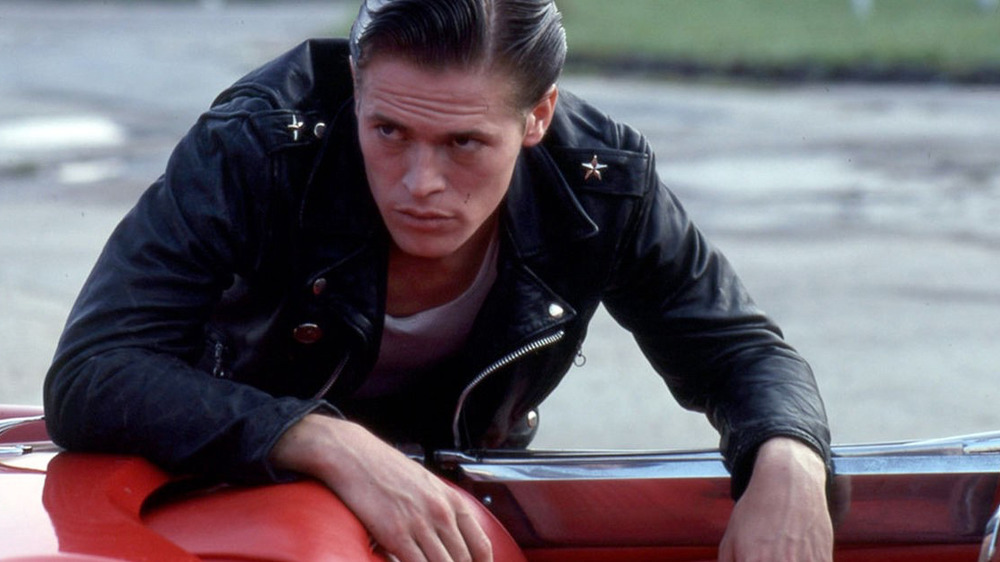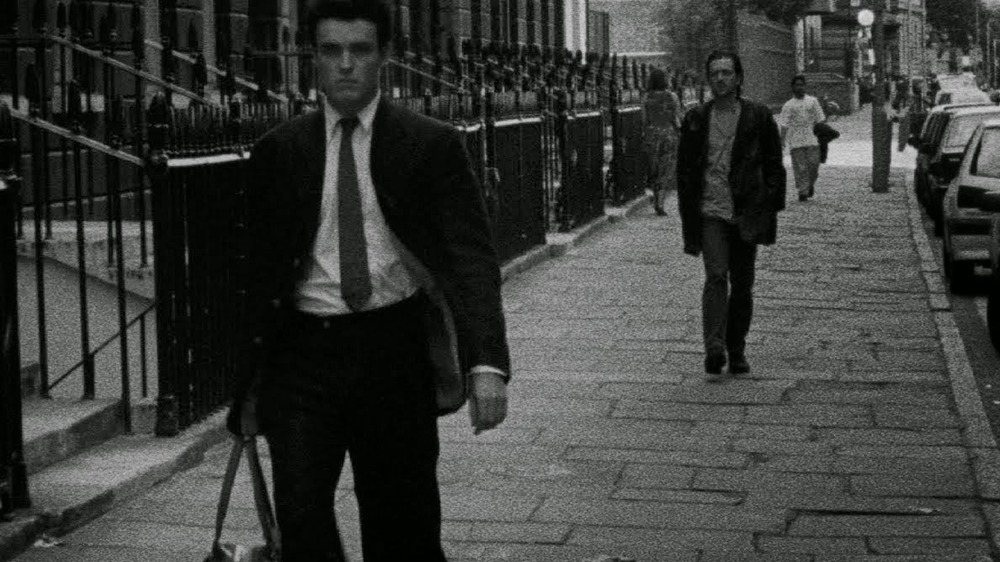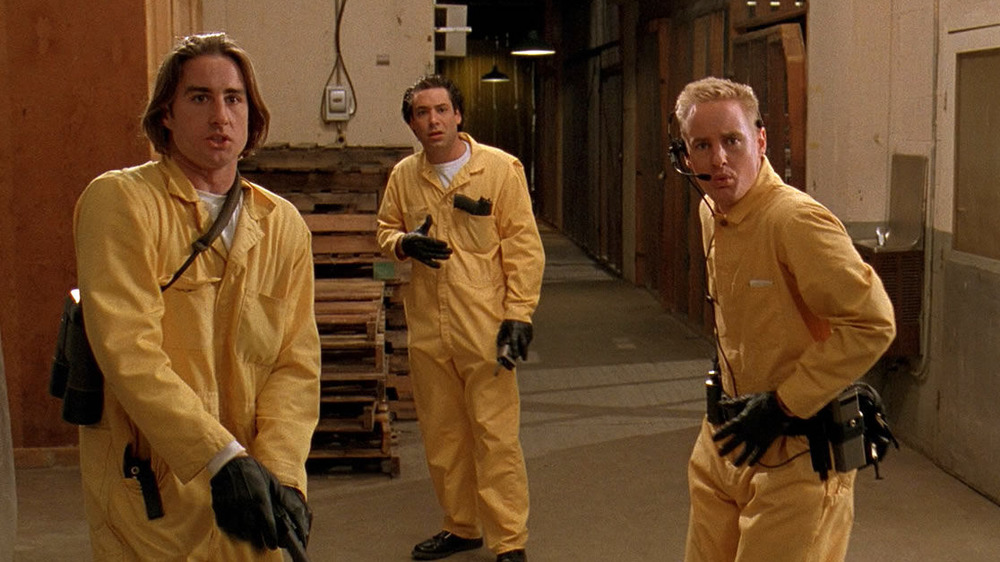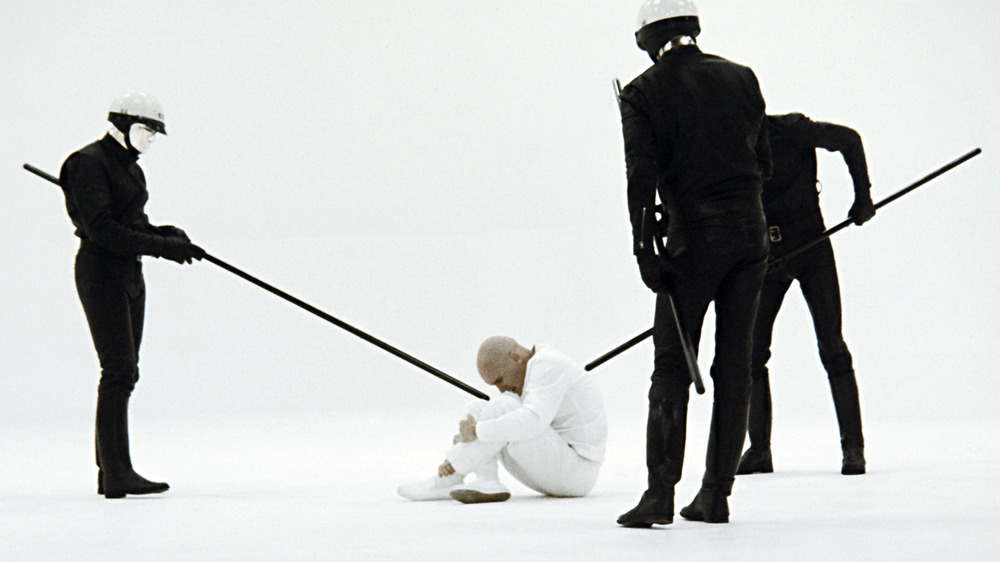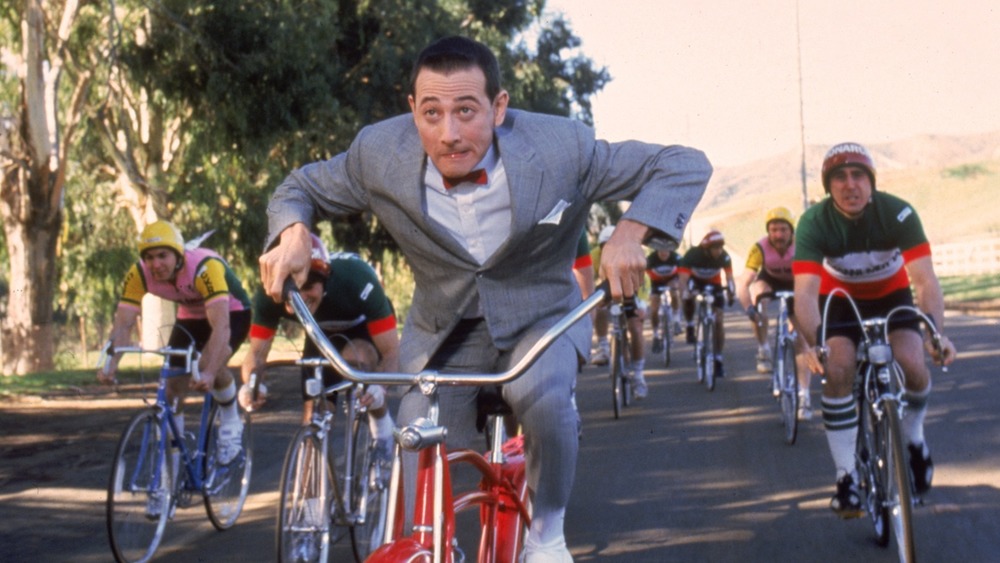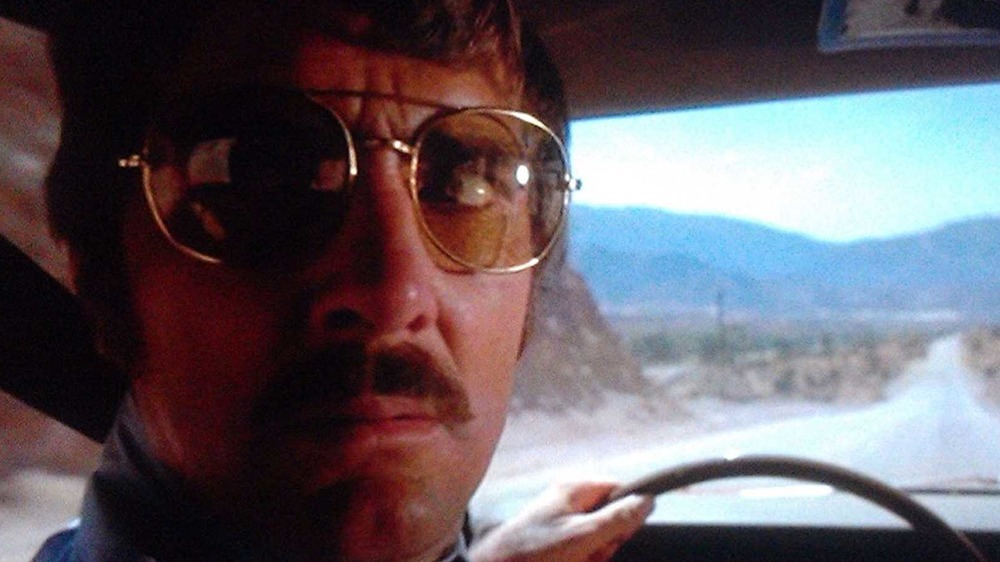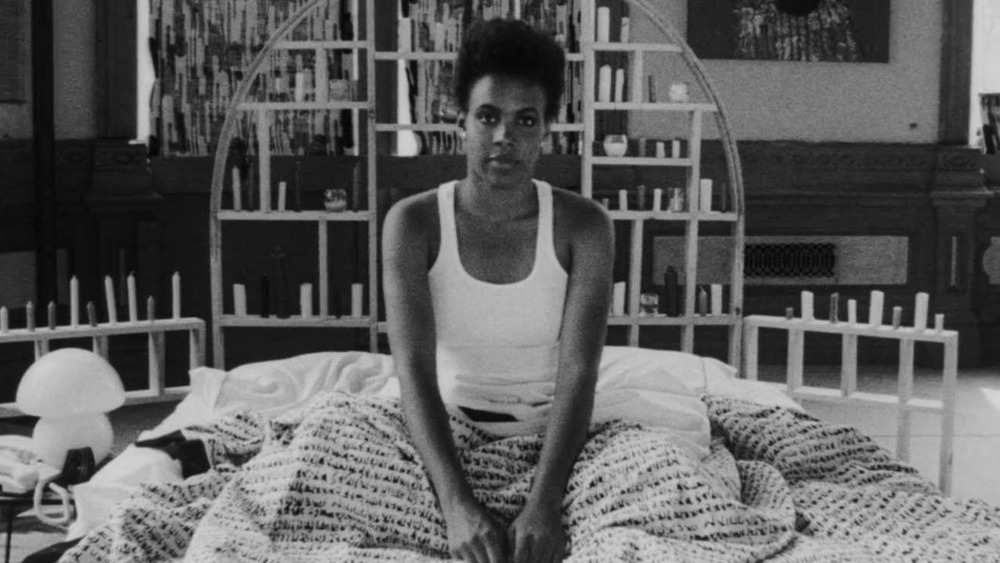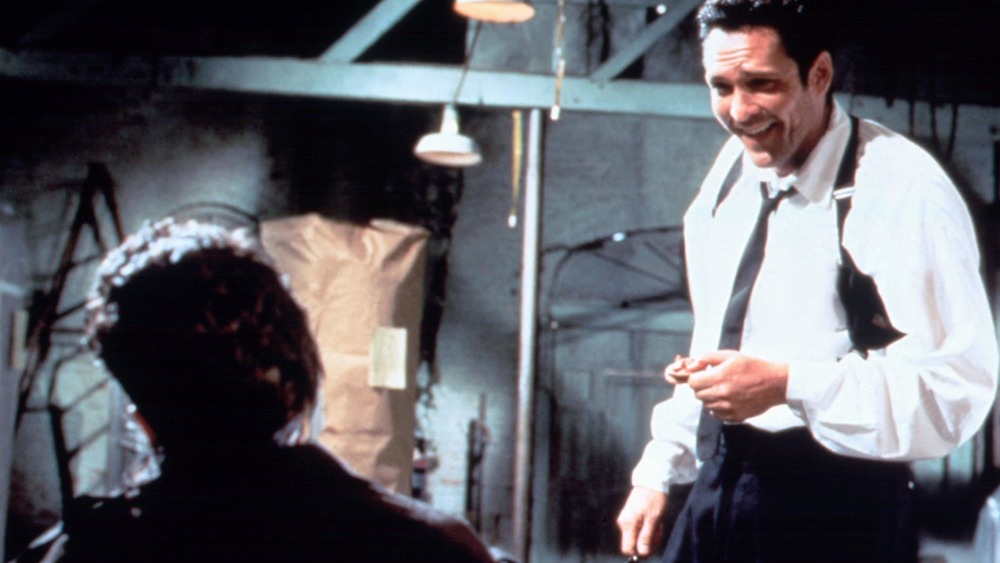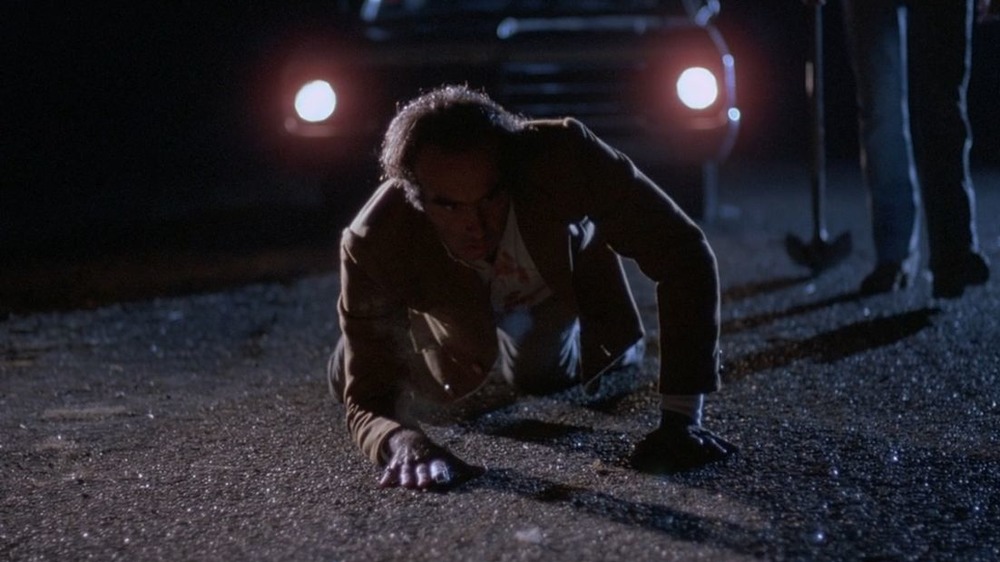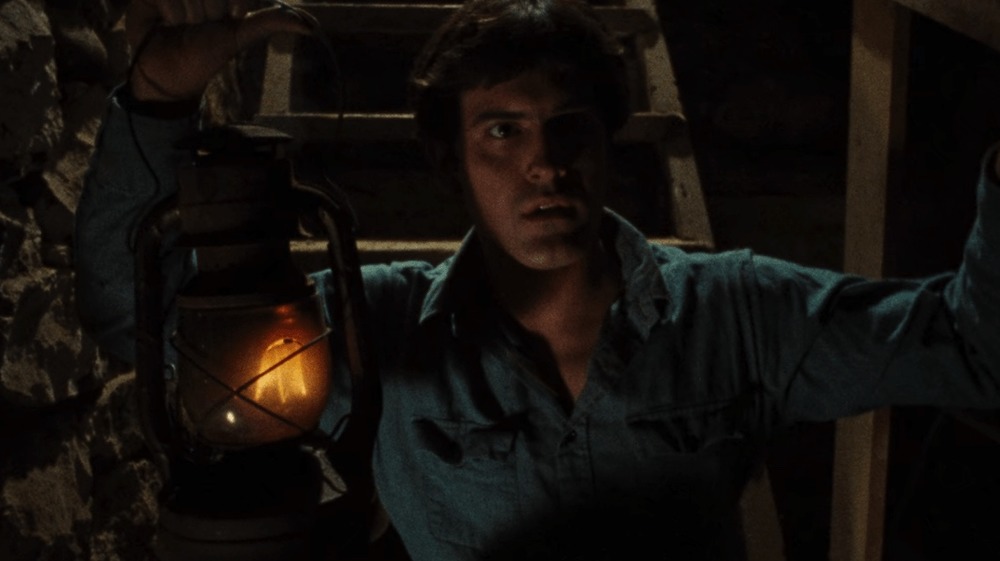Ranking Legendary Directors' First Movies
There's no "normal" path to finding fame and fortune in the movie business, especially not when it comes to becoming a director. While some directors started their careers with brilliant work fresh out of film school or from childhoods spent shooting short films on Super 8 cameras, others had to get a few movies or music videos under their belts before they became the auteurs we know today.
In some of these directors' first films, you can see a faint glimmer of future brilliance, even if it's buried under layers of low-budget schlock, but some films from first-time directors are so bad that we're honestly shocked they ever worked again. Hey, everybody has to start somewhere right? Some legendary directors were brilliant from the beginning, while others are frankly lucky to have had film careers at all. Which directors started strong, which ones started weak, and most importantly, where do they stack up against each other? You may be amazed. With Rotten Tomatoes as our guide, here's our ranking of the first movies from legendary directors!
Piranha II could've sunk Cameron's career like the Titanic
Jaws launched the summer movie season in 1975, and in its wake came rip-offs like Orca, The Deep, and the best of the bunch, Joe Dante's Piranha, with a 69% Tomatometer score (nice). But we're not here to talk about that movie, we're here to talk about its sequel — Piranha II: The Spawning. Gee, with a title like that how could it possibly be bad (sarcasm)? And these aren't just mutated killer fish, they're mutated killer flying fish!
Despite that Oscar-caliber setup (more sarcasm), Piranha II only managed a 6% critics score and 11% audience score. In other words, this film stank like week-old fish. That should've been a career killer, but its first-time filmmaker somehow survived, and for that, we're grateful. Who was it, by the way? James Cameron, whose second film, The Terminator, did significantly better. In fact, it's his highest-rated movie ever. Not surprisingly, Piranha II: The Spawning is his worst. But with three Oscars to his name and more than $7 billion in total global grosses, we'd say the Titanic and Avatar director has recovered nicely.
David Fincher has disavowed his first film
Ridley Scott's second film, Alien, earned a 98% Tomatometer score. James Cameron's third film, Aliens, scored a 97% Tomatometer score. David Fincher's first film, Alien 3, earned a 43% score ... quite the drop-off. Alien 3's score is the franchise's worst, excluding the Alien vs. Predator movies, which were nothing but cheesy cash grabs anyway.
So, what went wrong? It certainly wasn't Fincher, who was an acclaimed music video director (yes, kids, MTV used to play music videos), with hits like Madonna's "Vogue" and Paula Abdul's "Straight Up." Oh, he also went on to direct Seven, Fight Club, The Social Network, and Gone Girl, earning $2 billion in global grosses.
Alas, Fox took Alien 3 away from Fincher and recut it. As Fincher sardonically told Vulture, "Once I ... had been through a situation where I was a hired gun to make a library title for a multinational, vertically integrated media conglomerate, I had a different view of how writers and directors needed to work." Fincher has disavowed Alien 3, though a proper Fincher Alien movie is a film fan's dream.
Before he was the godfather, Coppola was the schlock-meister
Some filmmaker's careers are bookended by masterpieces, while others peak in the middle. So far, Francis Ford Coppola belongs in the latter category. His most recent directorial effort, 2011's Twixt, earned an abysmal 26% score, while his first film, Dementia 13, earned a so-so 63% Tomatometer score. Still, that's pretty good considering the 1963 horror film — one about an ax-murderer running loose at a castle — came from the Roger Corman school of B-movie schlock and was supposed to make a cheap profit, nothing more.
Hard to believe that same director would go on to make some of the greatest films of the 1970s ... or ever. We're talking The Godfather, The Godfather Part II, The Conversation, and Apocalypse Now. That's an unparalleled seven-year run (which doesn't include his Oscar-winning screenplay for Patton), as not even Steven Spielberg or Martin Scorsese could match Coppola in the '70s. But sometimes the brightest stars also burn out the fastest. So it is with Coppola, whose brilliant but inconsistent career all started with Dementia 13.
Jackson's gory film debut was in Bad Taste
With nearly $3 billion in global grosses and a record 11 Oscars for The Return of The King, Peter Jackson's remarkable accomplishment with The Lord of The Rings trilogy has never been replicated, before or since. And that's not even counting the billions he's earned from The Hobbit movies and King Kong, either. What's most impressive is that Jackson and company have also built a massive cinematic infrastructure in New Zealand, a 12-hour flight across the Pacific from Hollywood.
How did this modern mogul and multiple Oscar-winning filmmaker get his start? With a blood-soaked horror-comedy hybrid about killer aliens called Bad Taste. Hard to believe, right? Not that Bad Taste is bad. It's actually pretty entertaining genre fare, with a 68% Tomatometer score (higher than The Lovely Bones, fwiw). Jackson followed Bad Taste up with Meet the Feebles, about coke-sniffing puppets (you read that right), and Braindead, maybe the goriest movie ever made. From genre director to Oscar winner to multi-millionaire Kiwi movie mogul, Jackson's career is certainly not in Bad Taste, even if it started that way.
Scorsese's debut was knocking on the door of brilliance
Martin Scorsese is considered by many to be one of the greatest film directors of all time. Known for his audacious camera work, roller coaster-paced editing, and uncanny ability to inspire mesmerizing performances, Scorsese has directed Taxi Driver, Raging Bull, Goodfellas, and more masterpieces than we have space to list here. Where did it all begin? With a brilliant bravura debut? A timeless tour de force? Actually, not really.
Who's That Knocking On My Door? is ... good, not great. At least when compared with Scorsese's work to come. With a 70% critics' score and a 61% audience score on Rotten Tomatoes, Who's That Knocking On My Door? gives us a taste of Scorsese's future genius with its tale of a tough guy (played by frequent Scorsese collaborator Harvey Keitel) who falls for a bohemian blonde. There's the macho guy with anger management issues, the dynamic visual style, and the dreamy, angelic blonde. Everything that would come to define Scorsese is on display in Who's That Knocking On My Door?, though the film is for Marty purists only.
There's lots to love about Kathryn Bigelow's debut, The Loveless
Kathryn Bigelow made history when she became the first woman to win the Academy Award for Best Director for The Hurt Locker. Bigelow's filmography had been pretty eclectic to that point. There was the Jamie Lee Curtis vehicle Blue Steel and the iconic Patrick Swayze- and Keanu Reeves-starring surfer thriller Point Break. Plus, there was the dystopian sci-fi flick (written by her ex-husband, James Cameron) Strange Days, as well as K-19: The Widowmaker, a thriller about Harrison Ford and Liam Neeson as Soviets on a submarine.
Bigelow's history-making career all began with 1983's The Loveless, co-directed with Monty Montgomery. The film is Tennessee Williams meets The Wild One, with a rich Southerner in the 1950s falling for a leather-clad biker played by Willem Dafoe. With an 80% critics' score and a 62% audience score on Rotten Tomatoes, Bigelow's debut was noteworthy but not spectacular, which made her historic achievement 25 years later all the more remarkable.
Nolan's debut showed he was a filmmaker worth Following
Conventional wisdom says blockbuster movies have to appeal to the lowest common denominator. If that's true, Christopher Nolan has made billions ($4.9 billion to be exact) raising the lowest common denominator up an IQ point or two. You don't need a PhD in quantum mechanics, game theory, or dream interpretation to enjoy his films, just a lack of distractions and probably subtitles (Mr. Nolan, turn the background noise down and the dialogue up on your movies, pretty please?).
Anyway, Nolan's predilection for being non-predictable started with his very first film. You may think it was Memento, but that 2001 indie thriller is the movie that got Nolan noticed by big studios (and eventually got him his game-changing Batman gig). However, his first film was actually the super small-scale Following. How small? The 69-minute runtime barely qualifies for feature length, while its $240,000 worldwide was probably less than The Dark Knight earned at a Saturday matinee in Pasadena. Still, Following's 81% critics' score and 85% audience score showed the movie world that Nolan was a filmmaker to follow.
Wes Anderson's idiosyncratic style exploded like a Bottle Rocket
There are religious people less devoted than Wes Anderson fans. Not surprising, as watching Anderson's films is like traveling to a unique universe unto itself. His idiosyncratic style is one of the most recognizable in pop culture. Even if you've never heard of the "Spielberg oner" or Hitchcock's "Vertigo effect," there's a 96.5% you can tell a photographer, "I want a Wes Anderson shot," and they'll know exactly what you're talking about (object center-framed, ideally with a colorful pastel palette).
While his $500 million global box office is less than what some directors earn in a single week, few directors inspire the same passionate devotion as Wes Anderson. It all started in 1996's Bottle Rocket, a comedy about a bunch of hapless crooks that not only started Anderson's career but also that of its sibling co-stars, Owen and Luke Wilson. With an 85% critics' score and 81% audience score, it also started Anderson's multi-decade run as a critical and indie fan darling.
THX 1138 was George Lucas' first (and only) bomb
A long time ago, in a galaxy far, far away ... no, even farther away ... there was THX 1138. In one of the biggest ironies in Hollywood history, the blockbusteriest of blockbuster movie directors, George Lucas, actually started as an experimental filmmaker. His debut film, THX 1138, is true to his underground roots. But while plenty of film fans have seen it since 1971 (given the filmmaker would go on to create Star Wars and Indiana Jones), that wasn't the case during its release.
With its bleak, dystopian, and yes, highly experimental worldview that's far removed from Star Wars' sunnier aesthetics, Lucas' THX 1138 only managed a $5,000 worldwide box office. That's not a typo. We're surprised he ever worked again, but luckily for Lucas, 1973's American Graffiti earned 280 times THX 1138's numbers, and he's yet to direct a bomb since. While THX 1138's box office numbers are pitiful, people who've watched it since have enjoyed it, giving the Robert Duvall-starrer an 86% critics' score and 74% audience score.
Before Beetlejuice and Batman, there was Pee-Wee Herman
Tim Burton went from being the weirdo animation apprentice who didn't fit in at the Mouse House to the (still weirdo) blockbuster director of Beetlejuice, Batman, and several Johnny Depp vehicles. Ironically, Burton's biggest box office hit, 2010's $1 billion dollar-earning Alice in Wonderland, was produced by Walt Disney Pictures, nearly 30 years after he left the studio. Money talks, right?
Before Burton earned big ones bringing his own ideas to the big screen, he got his start by bringing Paul Reubens' popular Pee-wee Herman character to theaters. Pee-wee's Big Adventure may seem like an odd debut for the creator of Edward Scissorhands and The Nightmare Before Christmas, but the 1985 film's suburban, 1950s-esque, Southern California aesthetic, as well as its outlandish cast of oddball characters and (let's face it) undercurrent of creepiness is distinctly Burton. Pee-Wee's Big Adventure's 87% critics' score / 79% audience score and $40 million worldwide helped make Pee-wee Herman a 1980s icon and helped bring Burton to the mainstream.
Steven Spielberg showed blockbuster potential in his first two films
Steven Spielberg's first film is not the 1975 fish-in-the-water thriller Jaws, though it's the film that practically invented the summer movie season and launched Spielberg into the stratosphere. Jaws was actually Spielberg's third feature film and his second theatrical release. His first two films may seem like small potatoes compared to the ones that would come, but watching them now shows that Spielberg had an uncanny cinematic intuition from the start.
With an 88% critics' score and 84% audience score, Duel is a 1972 made-for-TV movie that rises far above its small budget and silly plot (a man is stalked by an unseen, psychotic semi-truck driver whose big rig roars like a Tyrannosaurus) largely thanks to Spielberg's inventiveness. His success on Duel earned him his first theatrical directing gig, 1974's Goldie Hawn-starring The Sugarland Express. With an 85% critics' score and 66% audience score (albeit an uncharacteristically anemic $7 million), The Sugarland Express impressed Universal Studios enough to send the 20-something Spielberg to Martha's Vineyard to film Peter Benchley's best-selling shark novel. Good call.
The first 'Spike Lee Joint' is a groundbreaking comedy
Shelton Jackson Lee, better known as "Spike," began his groundbreaking career while still a student at New York University's acclaimed film school when his student thesis film, Joe's Bed-Stuy Barbershop: We Cut Heads, won a student Academy Award. He followed it up three years later with his big-screen debut, She's Gotta Have It.
The 1986 comedy finds Spike Lee as a quadruple threat both in front of and behind the camera, as he wrote, produced, and directed the film. Plus, he played his oft-recurring character, Mars Blackmon, one of three potential suitors to the titular "she" who's "gotta have it." Any other first-time director may have been stretching themselves too thin, but Lee's debut turned out well, as She's Gotta Have It earned a 91% critics' score, 73% audience score, and $7 million worldwide.
Lee followed it up with 1988's School Daze before breaking ground (and hearts) with 1989's Do the Right Thing. Ever since, "A Spike Lee Joint" has been essential viewing for millions of moviegoers. And She's Gotta Have It proved so popular that it inspired a two-season long Netflix series in 2017.
The first film by Quentin Tarantino is for the Dogs
Few directors command the kind of clout to have their pictures billed as "So-and-So's Ninth Film." In fact, pretty much only Quentin Tarantino has that kind of brand equity. That wasn't always the case, as Tarantino's films weren't really numbered until 2003's Kill Bill: Vol. 1, the fourth film by Quentin Tarantino. The first film by Quentin Tarantino naturally wasn't billed as such, but it's still the stuff of legend thanks to the career it spawned.
Released in 1992, Reservoir Dogs established Tarantino as a director to watch. It showed his penchant for outrageous violence, outstanding dialogue, and outlandish characters. It also featured, arguably, his most famous scene — Michael Madsen torturing a cop with Stealers Wheel's "Stuck in the Middle with You" in the background. With a 94% audience score and 92% critics' score, Reservoir Dogs is second only to "The 2nd Film by Quentin Tarantino", Pulp Fiction, on Tarantino's Tomatometer ranking, though both are bested by True Romance, which QT wrote but Tony Scott directed.
The Coen brothers' brilliance was Blood Simple from the start
Even though Joel Coen usually gets the director credit while younger brother Ethan get a producer credit, it's an open secret the Coen brothers share filmmaking duties and the same cinematic vision. With an oeuvre that includes absurdist humor, stoner bowling comedies, shocking violence, existential commentary, Cormac McCarthy adaptations, and allusions to everything from Old Testament justice to Homeric Greek epics, you might think Joel and Ethan Coen started their careers as novelists or Classics professors. While their parents were university professors, the Coen Brothers actually began their careers as editors and screenwriters, with Joel Coen serving as an assistant editor on Sam Raimi's 1981 debut The Evil Dead, and the brothers both helped to co-write Raimi's 1986 black comedy, Crimewave.
In between those films, the Coen Brothers made their own theatrical debut, 1984's Blood Simple. While the two have since touched just about every genre imaginable, they started their career with a black-as-night noir throwback featuring frequent future collaborators Frances McDormand and M. Emmett Walsh. With a 94% critics' score and an 88% audience score, Blood Simple is still one of the Coen brothers' highest-ranking films on Rotten Tomatoes, bested only by Fargo and True Grit.
Sam Raimi started his career with a horror movie masterpiece
Sam Raimi's debut film may be the most impressive of them all. Every director on this list would go on to have a legendary career, and Raimi is no exception, with $3.3 billion in global earnings, including the historic, game-changing Spider-Man series. However, Raimi's debut film wasn't simply a marker of great things to come — it was a historic, game-changing film in its own right. The Evil Dead may be the most famous cult film of all time, inspiring horror filmmakers for decades to come.
The Evil Dead established all of Raimi's trademarks, including shaky cams, fast zooms, a delicate balance between horror and comedy, Raimi's 1973 Oldsmobile Delta 88, and the gratuitous physical decimation of Bruce Campbell, all of which Raimi would embrace for the rest of his career. It's also every bit as frightening and fresh as the year it was released. While the Evil Dead franchise would eventually trend more towards silly comedy, the original is a straight-up horror movie, and it's one of the scariest ever made. The film's poster even features a glowing quote — "The most ferociously original horror film of the year" — by none other than Stephen King.
With a 95% critics' score and 84% audience score, The Evil Dead is second only to Raimi's pseudo-sequel/remake Evil Dead 2 on his Tomatometer chart, while the movie's $29 million lifetime worldwide box office gross earned back 77 times its budget.
